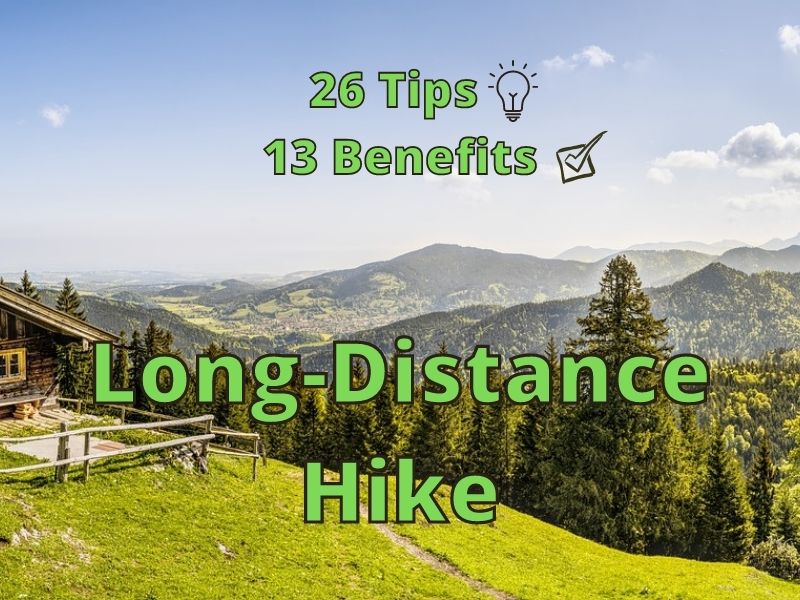Hiking is a fun trip for most people. But for some people, it is an obsession. Hiking literally means going on a long walk, especially in the countryside. The people who are obsessive about hiking get a craving to hike often. They hike for fun, and for the love of the outdoors.
To train for a long-distance hike, backpacking, or camping trip you may need to practice and prepare over the course of several months or longer, depending on how long your hike will be. Most of the preparation will consist of smaller hikes, leading up to the long hike.
We see films and documentaries portraying people going for a long hike. However easy or hard it seems if you go unprepared for a long-distance hike you can meet have difficulties. To avoid such a scenario, you’ll need to train yourself and be prepared when going for a long-distance hike. We’ll discuss best practices and what steps to take for the best results.
26 Tips for Hiking 3 or More Days:
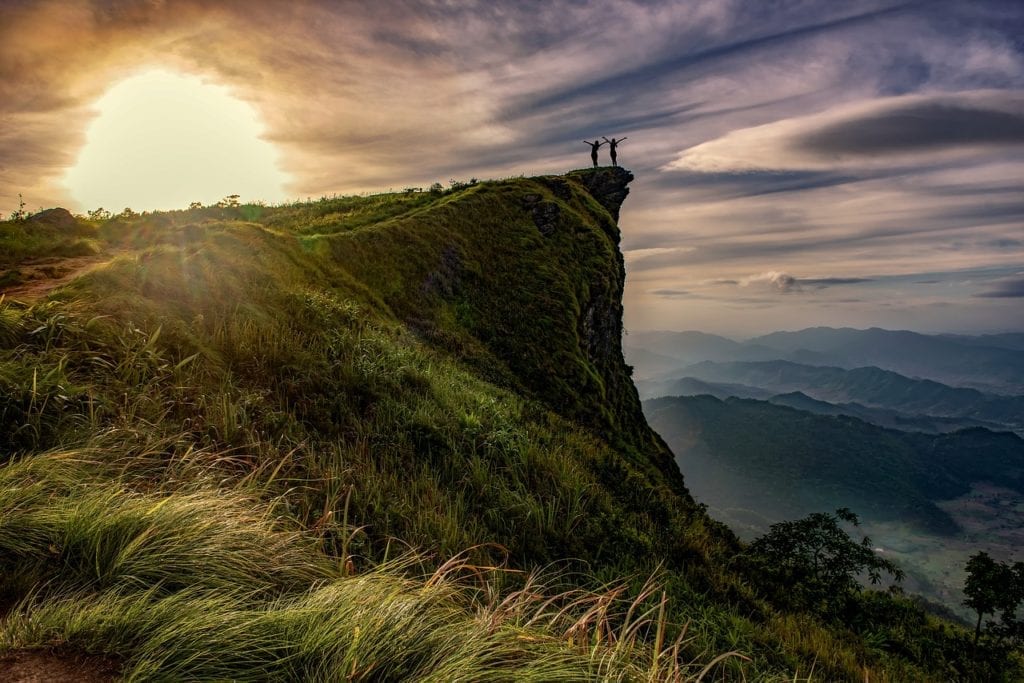
Here are some tips to help you to prepare for a long-distance hike.
1)Enjoyment and Struggle:
It’s fun to dream of hiking and how exhilarating and fun it will be. The whole idea of going for a hike may make you feel excited and happy. If you’re like so many, you think a long walk in nature will be a calm and serene experience.
The truth is that you will have these feelings as well as some struggles along the way on your adventure. It will be a tiring, dirty, and sweaty journey. Your body will ache and you’ll wonder why you are doing this.
That’s why preparation will help you realize your body’s limits and potential. Preparing will also let you know if you’re someone who really wants to go on a long 7 day or more hike.
2) Physical Training & Exercise:
To meet the requirements of a hike, you must get physically trained and exercise. Try going for long walks around your neighborhood and increase the walk distance gradually to allow your body to make adjustments over time.
Get into the habit of staying active through sports and exercise that works your heart and legs. You can join a gym or a fitness club or work out on your own. This way, your body will be better prepared for the challenge.
3) Anaerobic and aerobic Exercise :
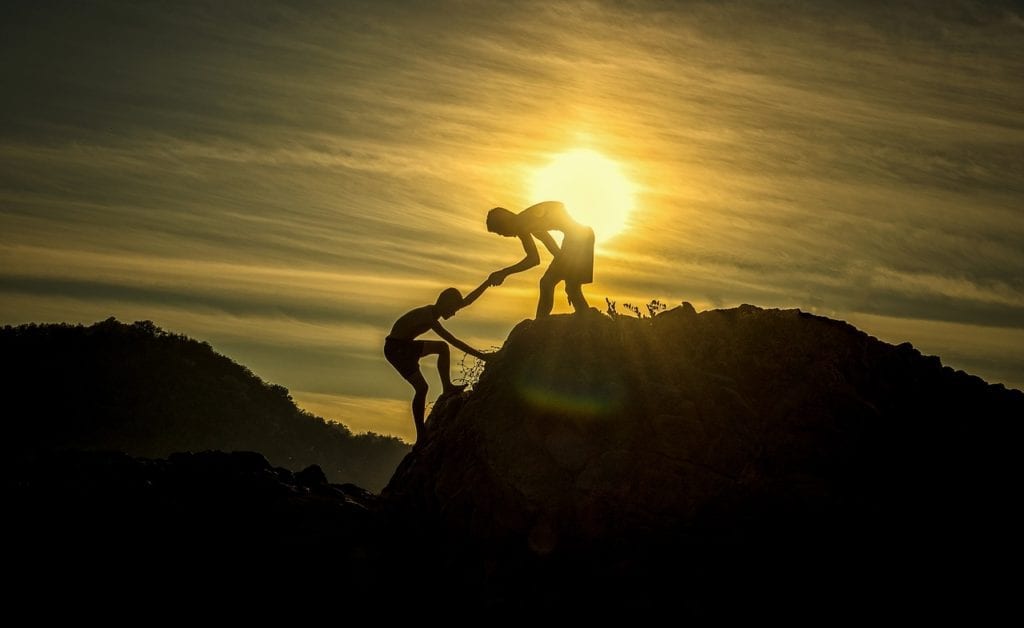
Cardio exercises of different types will greatly increase your ability to hike longer distances.
If your training by going for long steady hikes that take a lot of time and energy, but not too uphill leg strength, then you’ll usually be training aerobically.
Your body is using oxygen to produce energy and sustain your efforts to hike long distances.
But training for uphill climbs will usually mean you need to produce energy anaerobically. Your body will not use oxygen to produce energy for your legs.
You’ll need to increase your capacity for both anaerobic and aerobic exercises. Your stamina will grow and your muscle will adapt to producing energy in these different ways better.
4) Boost up your Stamina:
Try different exercises and physical activities to boost your body’s stamina. Running, swimming long walks, and aerobic class workouts will help make sure that you working your heart for longer periods.
You will eventually have more energy for longer periods. Doing increasingly longer hikes will help you increase your stamina for your multi-day hike.
5) Resistance Training:

Some exercises will prepare your legs, core, and body for the hike. Your muscles should be in good condition before your hike. Depending on how long you plan to go, will determine how much to practice.
One way to help is to increase muscle capacity is to wear your backpack on your practice hikes. Start off with just the backpack and each week add about 5 pounds to the pack, until you reach the amount you’ll be carrying with you. (If your hikes are getting longer each week, you’ll probably want to stay with the same weight, until your legs are ready.)
The lighter the pack, the easier overall the strain on your body will be. This is why so many hikers invest in lightweight gear.
Try exercises such as squats, lunges, and leg extensions to help the muscles around the knee to stabilize it and reduce the impact on the joint.
Try exercises such as the plank, leg lifts – standing and laying down, sustained sit-ups where you hold a position for short periods, and don’t forget running and swimming are helpful for the core also.
Don’t forget about the chest and arms. You’ll need strength in these muscles too, to maintain proper posture and overall balance when carrying your backpack.
Hiking poles can help with stabilization and reducing the impact on your body while you hike.
It’s not mandatory to join a gym, but some exercises should be done to increase overall well-being during the hike.
If weight lifting is not your thing, try any muscle training that increases muscle strength.
6) Train Your Walking Muscles:
A hike is like a walk in many ways. Going on daily walks will be very helpful when you are training. You can just go around your neighborhood or in a park, and gradually increase your walk distance day by day.
If you are not a walking person, then you can try the treadmill or stationary cycle to train yourself.
Your walking capacity will increase a bit daily. It won’t put too much pressure on you, and you can slowly get yourself ready for the hike. You can even try running to increase your stamina and encourage your muscles to adjust to more stress.
7) Try Cross-Training:
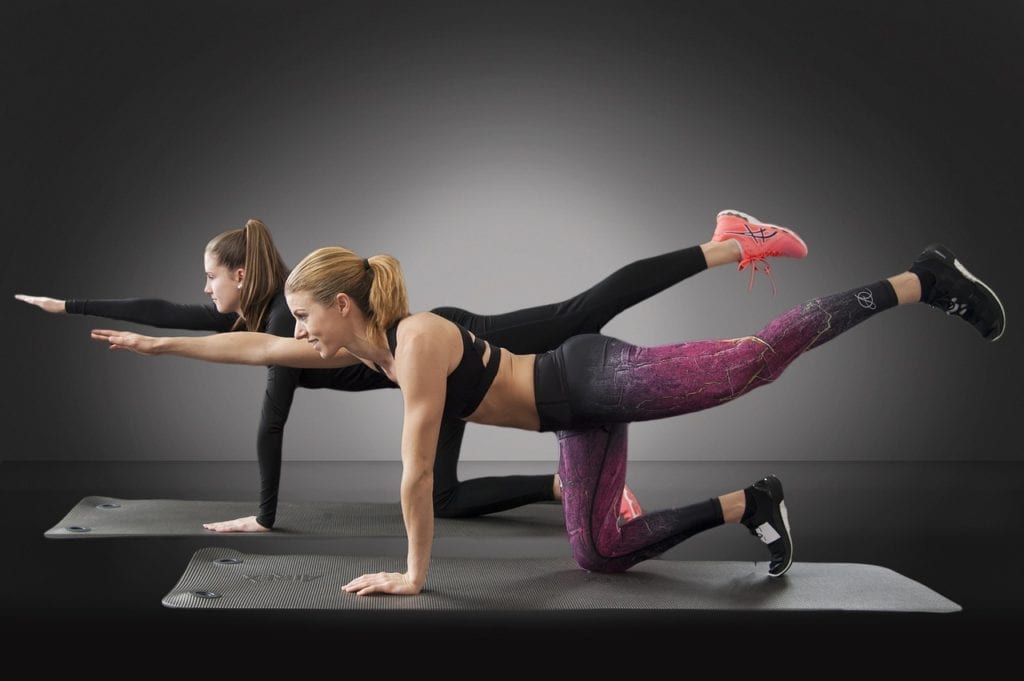
You might want to try other alternatives to long walks. How about biking (Amazon Link) around town, climbing stairs, or playing soccer or basketball.
If there’s something fun you love to do that gets your heart rate up, try doing this on days your not walking or hiking.
You can apply the same gradual increment technique to these activities. Just be sure to walk and hike as well. Cross-training will help you find variety in your training program.
8) Mental Preparation:
If you’re hiking for several days with your backpack, you will need to prepare to let go of worries and responsibilities.
To prepare yourself mentally, you’ll want to make a checklist of all the responsibilities you have. A list for home and work will give the assurance that everything is covered and checked off.
When preparing your list, check for items that need to get done before and after what might need to be done after the hike. Once you’ve made your list, you’ll know what going to happen and how things will get done. You’ll likely feel better about going on your trip and hike for an extended period.
You can then focus on being present and enjoying the journey. As you hike, you’ll be able to let go of your stress and getting a fresh perspective. If your mind is worried, then you won’t be able to enjoy the experience.
Travel Checklist

9) Plan a Pre-Hike:
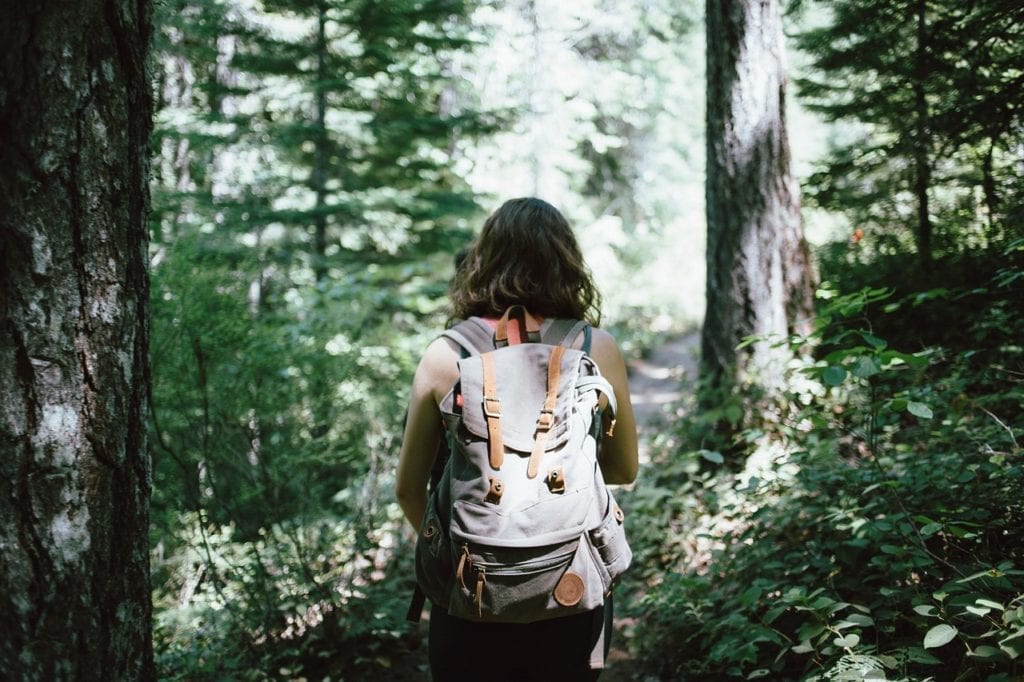
It is helpful to prepare for your extended hike by planing a shorter one. Try a one or two-day hiking trip. This should be done a month or two before going on your long-distance hike.
You’ll be able to see what went well and what could be better. This will help you prepare your mind, body, and gear better.
This shorter hike can give you many insights to help make the most of your long-distance hike.
10) Go fully equipped:
You’ll likely need to purchase some equipment before going on your hike. Use a checklist to make sure you’re including to most important equipment for the area you’re hiking in.
Some of the items to thinks about are where will your food and water come from, do you have good hiking shoes, bathroom needs, sun protection, any medical needs, and shelter.
The rest of the equipment and personal needs should be researched and thought about a month or more in advance if possible.
Always be one step ahead and think through your requirements in the journey. And don’t forget to take a First Aid Kit, as a precaution.
Hiking Checklist

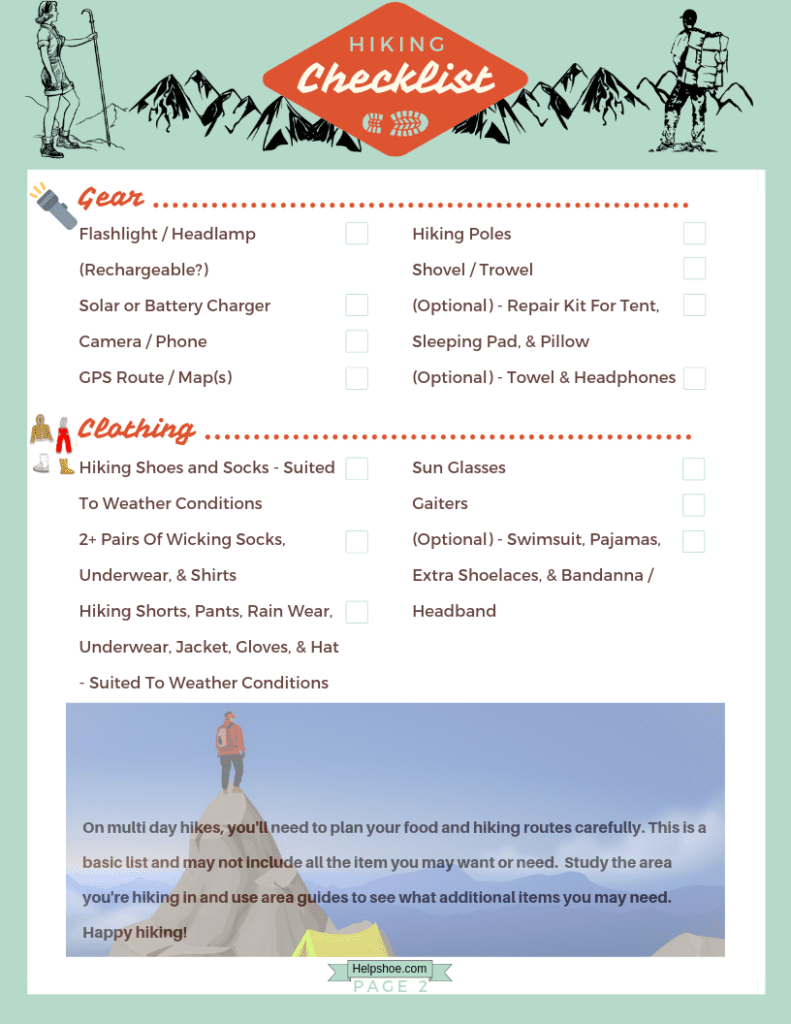
11) Know How to Use Your equipment:
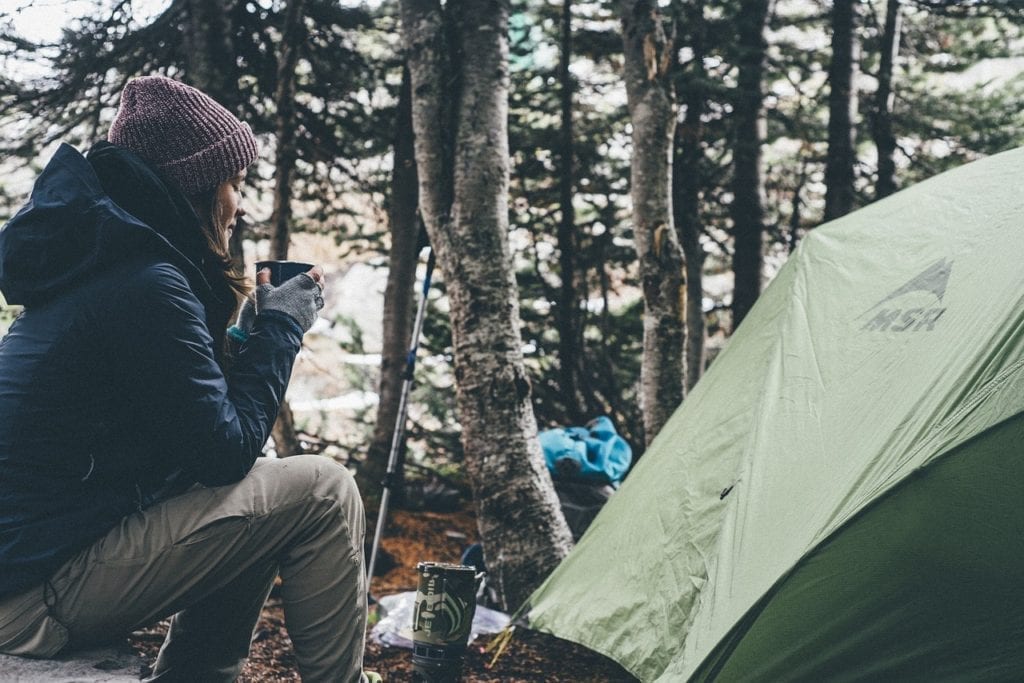
Before you go on any long-distance hikes you should try your equipment beforehand to try it out and find out how to: set it up, take it down, learn how it’s used, and if you might need some additional components or equipment.
The last thing you want to do is buy a tent without stakes, and have it blown down when the wind comes. Or when the rain comes and your tent lacks rain cover you’re sure was included with your tent.
It’s best to do some practice camping and hiking a couple of times before the main hike.
12) Hiking Route:
Establishing a plan for your hike can be helpful for safety and practicality.
It’s always a best practice to tell others where you are going to be and when you’ll be there. I once had a friend that was hiking and fell. He needed to go to the hospital, and luckily someone knew where he was.
You’ll need to plan out your hiking route and camping locations. When possible, make regular contact with someone every few days to tell them your location.
As you plan your route, you can plan for food needs and campsites. To feel extra safe consider using a satellite communicator (Amazon Link) to check in with others and notify them of emergencies.
13) Nutrition:
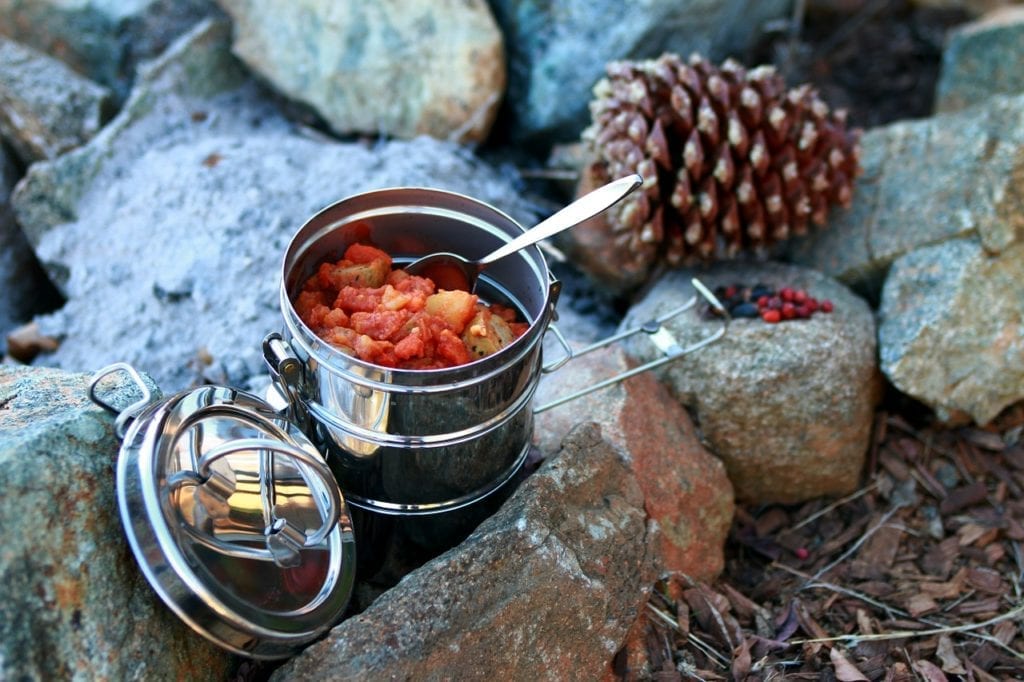
For a week-long hike, it might be OK for you to bring your own food. Your pack will start off fairly heavy, so make sure you’re prepared for the weight. As you hike more and more each day, your pack will get lighter.
Keep your water bottle with you and available whenever you need it. Make sure your bottle has a good water filtration system and filter any water from lakes, rivers, and any other source.
Dried food is the best way to pack the most food with the least weight. Don’t make your pack too heavy. I think it’s best to find the right balance of weight so you can enjoy the journey more.
If you usually take supplements, you can continue taking them during the hike. Your body will likely be using them more than usual.
14) Take it Slow:
When I was camping with the boy scout troop I belonged to, we went on a 5-day hike. We took it easy the first couple of days. There’s no real hurry when you’re hiking. You may have distances and timelines that you want to meet, but your health and happiness should come first.
If you push more at the beginning for several days, your body will eventually start to tell you, through your fatigue or injury, that you are pushing too much.
To avoid problems, take it slow for several days, and work up to longer distances. As your journey continues you’ll hopefully get into a rhythm where you hike around the same distance or effort each day.
Going slowly may allow you to enjoy the experience just a bit more. So don’t lose sight of being present in the moment over goals for distance.
15) Take breaks:
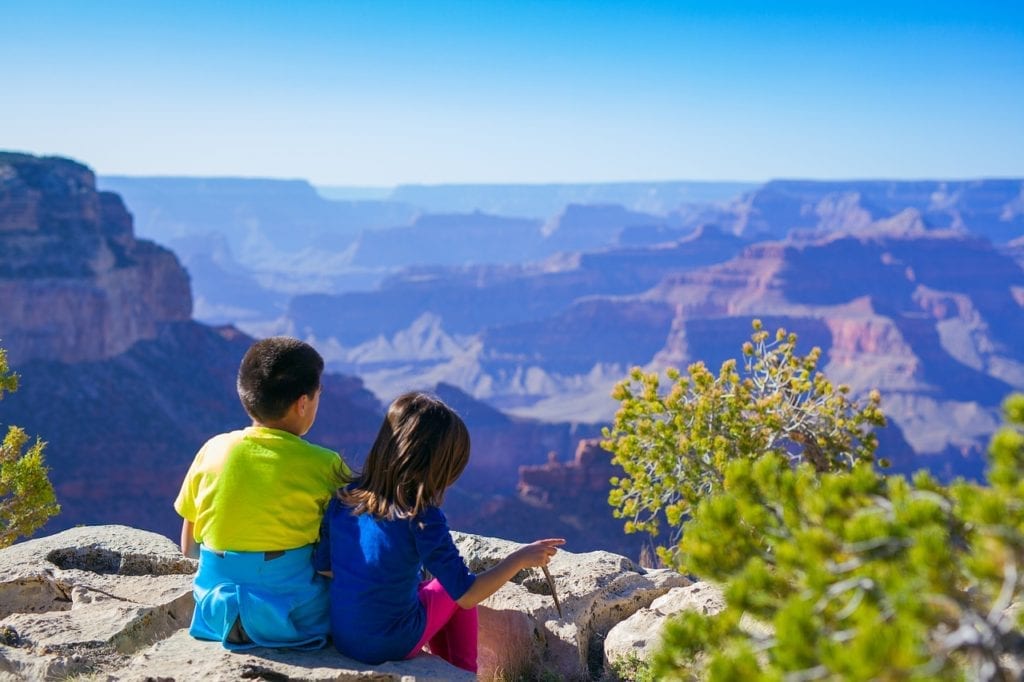
When your body starts giving you feedback, try to listen. There’s only so much it can tell you if you aren’t listening.
So, ever so often do a body scan to check on how you are feeling. You may not be sure what your body is saying, so talk to your hiking partner if you have one. If not, journal about your experience or video yourself and relate what is going on.
This should give you a bit of perspective and allow you room to make a better decision about what to do.
Listen to your breathing, your heart rate, and its rhythm, your muscles, joints, feet, body temperature, sweat glands, and energy.
When needed take a break. Take a break as often if needed. Sit somewhere to rest and calm yourself. Monitor your vitals and get back on the trail, once you’ve regained your energy and strength.
Sometimes during your breaks, you can meditate and restore even more energy. These breaks help you keep yourself in balance with your body and have a more enjoyable and successful experience.
16) Feet Care:
Your legs and feet will be the most important equipment you use on your hike.
To take care of your feet, you’ll need to prepare them each day and check them each night. If your shoes and socks are working well then you should have minimal problems.
Before you leave on your hiking trip sort out any injuries or other foot issues, so you can be ready for the hike. Double-check that your socks and shoes are going to make the long hike by, using them frequently beforehand.
During the hike, rubbing may occur in certain areas of the foot, so bring moleskin and use a sock liner.
And always make sure to keep your feet and shoes dry. Use a gator if needed and waterproof your shoes. If your shoes do get wet, ensure they dry before wearing them the next day and change to dry socks.
You can avoid blisters by wearing a highly rated sock brand, using lubricants, or if one does occur, bring blister block pads. Keep bandages, pads, and tape (Amazon Link) to wrap up any wounds.
Wool socks and natural animal hair socks can help keep feet dry even if your shoes do get a little wet.
17) Take a rest for a day before hike:

Giving yourself downtime to rest and recuperate the body, will help you have more endurance and allow you to hike longer.
Your body should have a couple of days to rest before hiking day, so everything is in good working condition.
Getting several days of a good night’s sleep will also help. So, try to ease into your hiking trip for your best experience.
18) Take Some Company With You:
For your physical safety and your mental well-being, having one or more companions can make a big difference. They can help motivate you and help you have fun.
You’re likely to have time for yourself as well. You can find time to be in nature with your own thoughts for a while.
Having company will give you the security and enjoyment you need for a good experience.
19) Footwear:
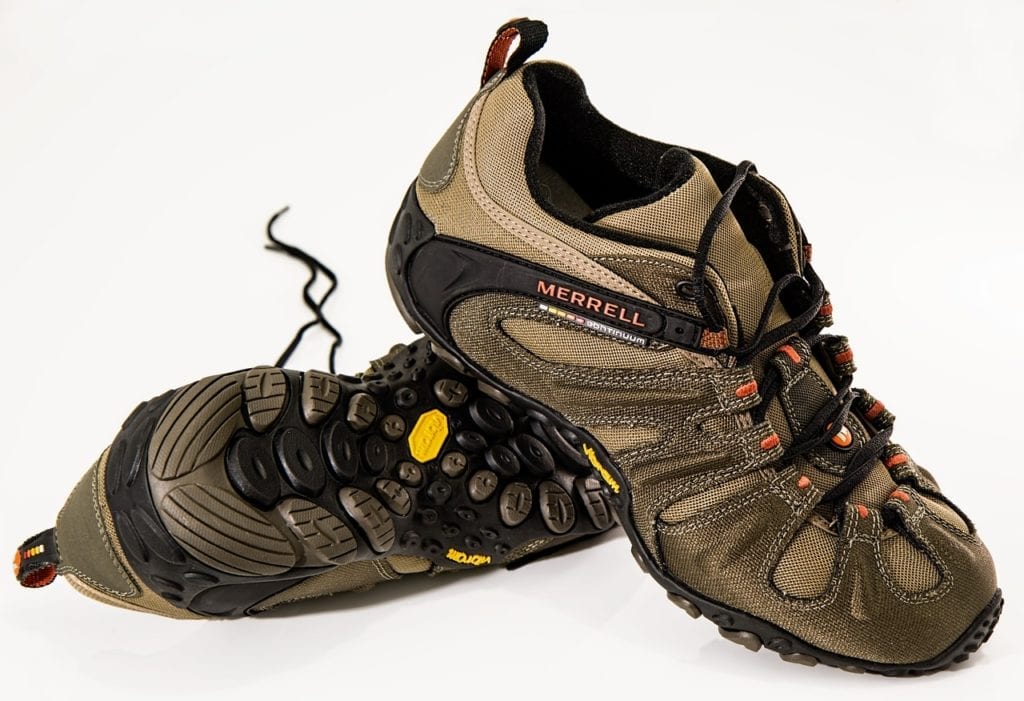
You should wear a comfortable pair of shoes for the hike (Amazon Link). Do your research to find what will be the best shoe for you on this hike.
You’ll be so thankful you had the right shoes, instead of shoes that are making you miserable. If you don’t have the right footwear, go to a store and try on several highly rated hiking shoes.
Whether you get trail runners or hiking boots, may depend on your preference and your needs. Try to be open to all the available options, if they are good shoes.
Take the time to wear the shoes on several hikes before you settle on them. Some stores let you exchange or return shoes for several months if they are still in good condition.
20) Photograph Your Hike For Memories:
This might be a once-in-a-lifetime experience. Be sure to record some of the experiences, so you can relive the experience and share them with others.
Most phones will work fine for recording memories. If you don’t bring your phone, get an action camera. This is a good option when hiking, for all the activities that involve possibly dropping your camera and contact with water. (Amazon Link)
You will surely witness some amazing sights on your way.
21) Take A Bag For Trash:
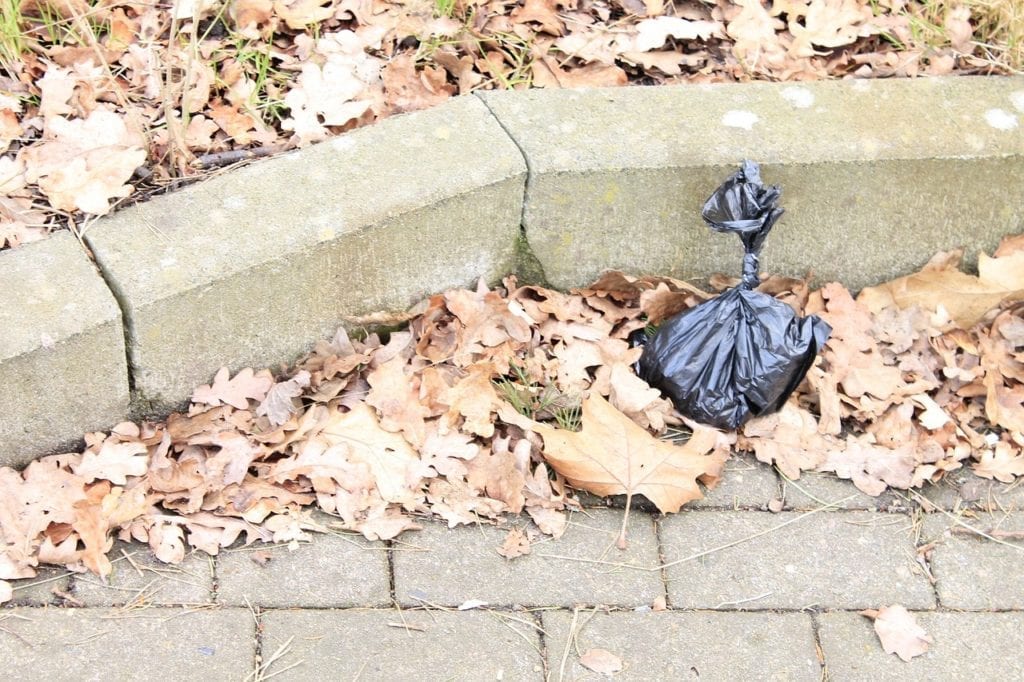
Always pack out what you pack in. Take a bag to put all your trash in. Some people think a little trash is OK to leave at a campsite or along the trail. Is that what you want to see?
I don’t. So I make sure I clean up after myself whenever I go camping.
Taking care of the environment is going to help you feel good about helping keep nature beautiful.
When hiking in some areas, you’ll need to carry bags to clean up your human waste after using the restroom. In other areas, you’ll need to dig a hole and bury the human waste a certain distance from the trail and from water sources. Find out what the policies are for the areas you’re hiking in.
22) Know The Wildlife In The Area:
While selecting the area you’re hiking in, check out what wildlife you may encounter. This will serve to help you take certain precautions around more dangerous animals.
Do you need a bear canister, bear spray, mosquito spray, or a rattlesnake first aid kit?
23) Keep Track Of Your Way:
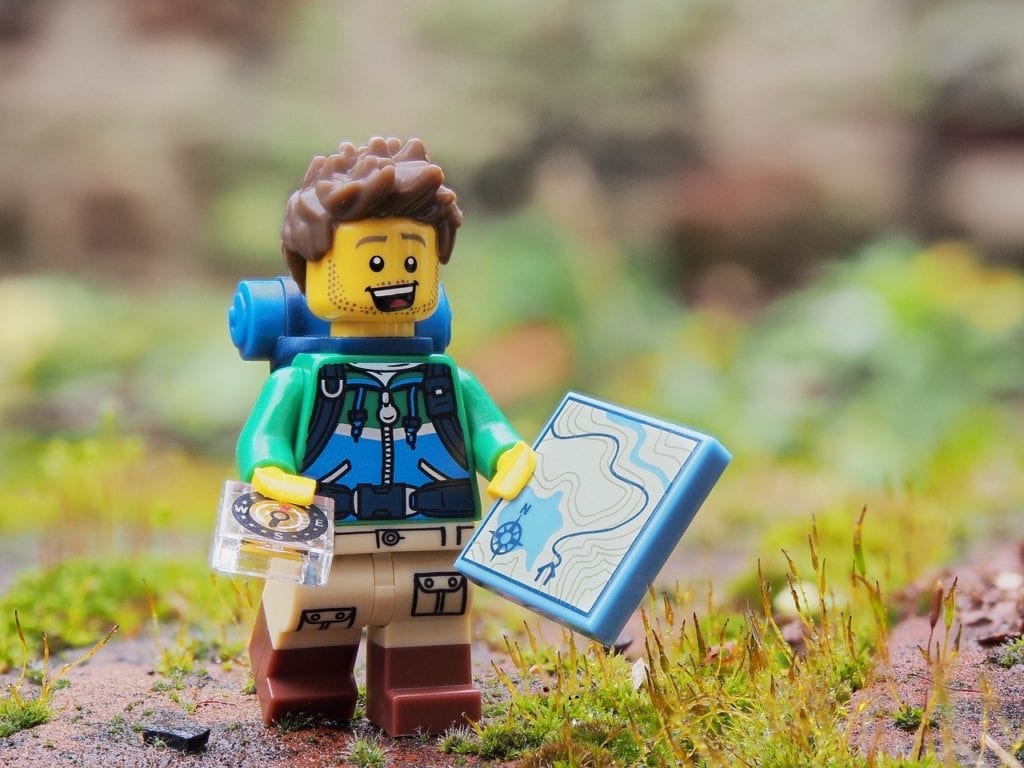
If you are hiking solo, then you should know the route very well. Most phones will be able to help you find your way with GPS tracking apps. Or you can use a map for this purpose.
Getting a solar charger (Amazon Link) or a large-capacity phone charger can help you recharge your phone or device while on the trail. It can be scary and dangerous if you get lost. Be safe, by being on track.
24) Books for Downtime:
You can keep a book with you for the down times when you want to relax and enjoy the moment of escape and relaxation.
For some, a book can help them feel more relaxed and at ease after a long day of hiking.
For all the bookworms out there, definitely bring a good book to keep you company on your journey.
25) Use Poles:
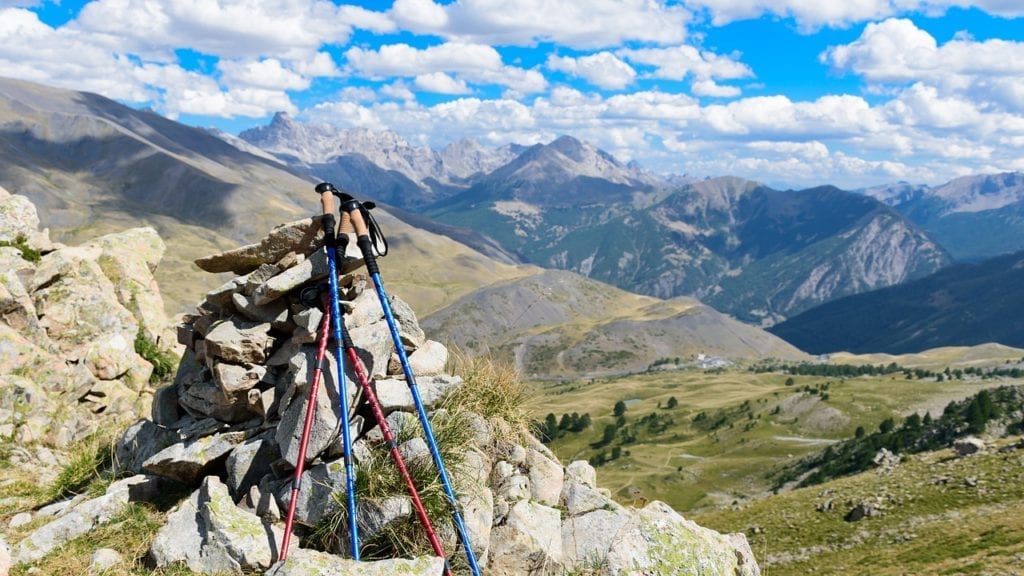
I felt an almost immediate difference when using poles when my knees were sore. They take the pressure off the joints and help with stability.
I now always use poles when going on a long hike. You may notice that your arms and chest are getting a bit of a workout, which is helpful for hiking. Keep hiking poles on the list of things to take, when planning your long hike. (Amazon Link)
26) Stay Hydrated:
You will likely need to carry water with you for a day or so until you get to a new water source. Keep a sufficient amount and don’t depend on water spots that may or may not be available. (Amazon Link)
You don’t want to be away from water, even for a day when hiking longer distances. Dehydration can cause dizziness and blurry vision and can result in unconsciousness eventually. Drink enough water and stay hydrated throughout the journey.
13 Benefits of Hiking:
If you’re wondering if you should go on a long hike, we’ll discuss benefits that might persuade you to choose to do it.
Some find the adventure of exploring new places and nature inspiring and rejuvenating. A long hike can give a different perspective on what is important.
Likely, you’ll still feel the same after your hike but may have a new appreciation for nature and the environment.
I found that I felt physically different after days of hard hiking. I was full of energy and didn’t want to leave the forest.
Whatever you feel, here is a list of 13 things to take into consideration when hiking for longer periods.
1) Fitness and Weight Loss:

Hiking is very helpful for fitness and health. It is very similar to walking because it puts less stress on your joints than running. Walking has been shown to have a similar health benefit as compared to running.
With the right choices in diet, and hiking consistently, you’re sure to reduce your overall weight. Hiking up hills can help you burn even more calories because you’re putting in a lot of effort. Hiking all day has been compared to running a marathon because of the calories burned.
As you hike you may start to feel different, as the good feeling chemicals are released and your body feels more fit.
2) Helps Control Diabetes:
Good news for those with diabetes! Hiking is an effective way to control your sugar levels. Through hiking, you stay fit, and your body metabolism increases. In this way, your diabetes gets under more control.
Doctors always advise diabetic patients to use exercise and physical activity to help control blood sugar.
Regular use of the muscles when hiking helps lower sugar levels and can aid in the prevention of diabetes from some.
3) Controls Blood Pressure:

Exercise is good for your blood pressure. Hiking can help get your blood pressure under control. As you hike think of your worries floating away and your health floating towards you.
4) Heart Risks Reduced:
Think of a long hike as a way to reboot the body. After a week of hiking every day, your body adapts and starts to do things differently.
Your heart is positively influenced, as long as you don’t have any prior conditions. It’s always important to contact your health care provider to discuss any exercise routine.
The chances of heart disease and stroke can be reduced as a result of the steps you are taking to exercise including hiking.
5) Helps in healing:
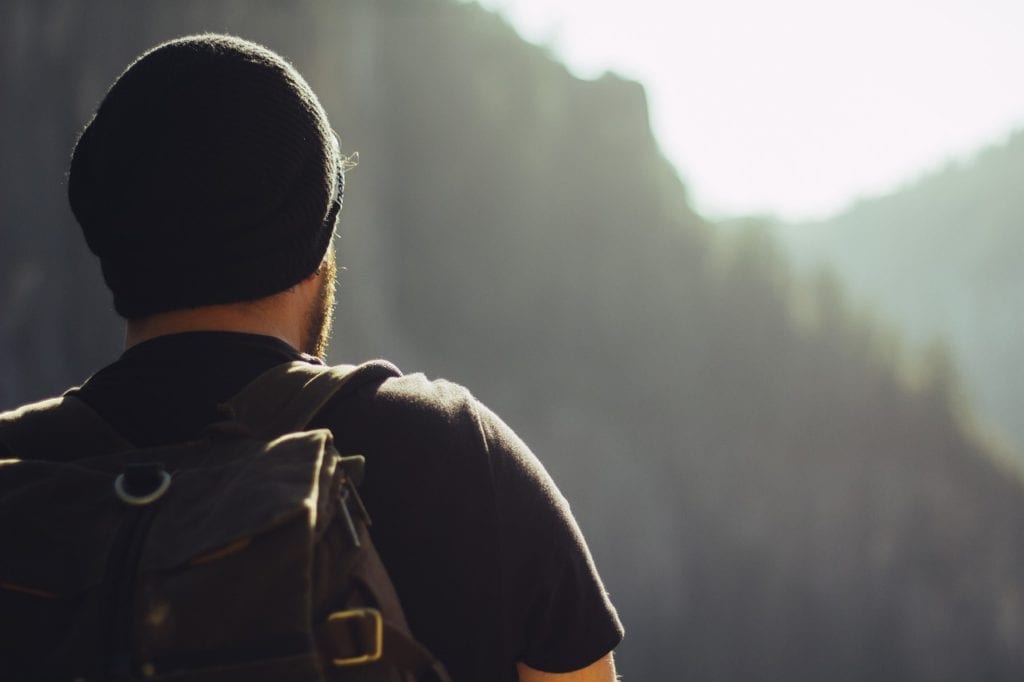
Research suggests that exercise can help reduce the chances of getting cancer. Those who have been through surgery or are healing from an injury, heal better with the right type of exercise.
Your body wants to work effectively at healing and fighting cancer most of the time. Exercise can help the body with these processes.
6) Takes care of your whole body:
You’ll notice from hiking long distances that you will use muscles that may not have been used for a long time. Your body will take shape as you continue over time to hike and watch your diet.
While going to the gym is usually more convenient than a hike, it may not be as motivating. Hiking can help your whole body, even if the improvement takes many months to manifest. As you slowly build up your hike distance, you’ll also be building a stronger, healthier you.
7) Stronger Bones:
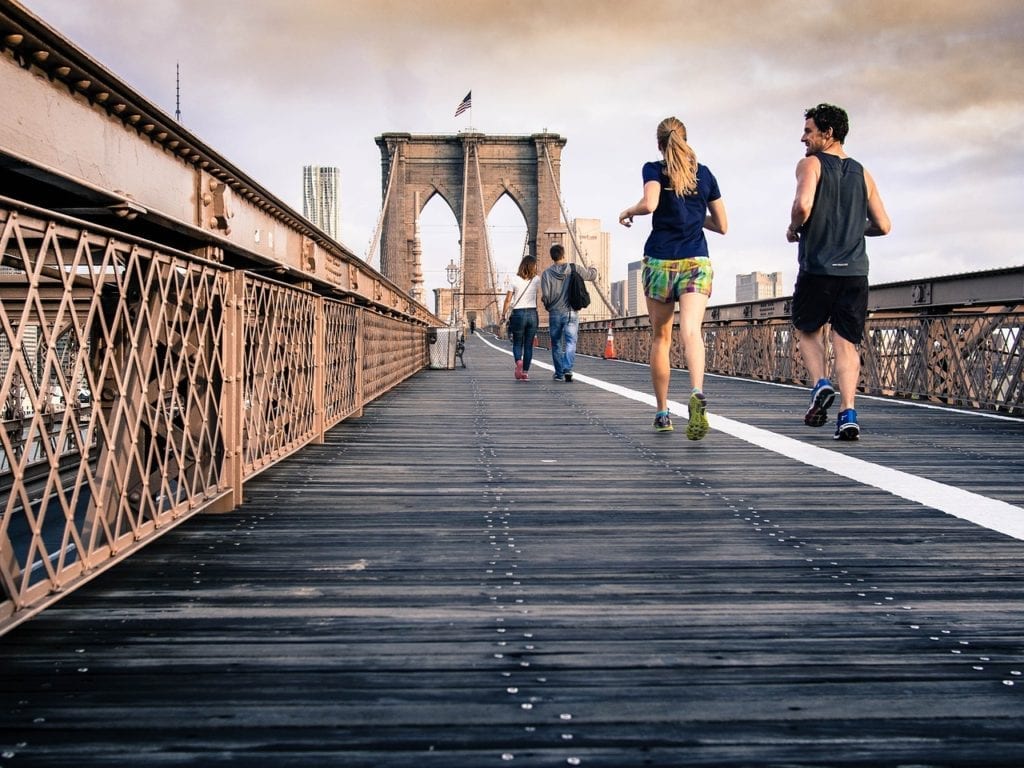
Physical activities lead to stronger bones. Your orthopedic doctor can give you some data on your bone density and how walking and hiking might help.
Bones get stronger when we walking, hiking, and run. Your thicker bone density can help you prevent broken bones when you have a fall or get into an accident.
8) Stress reduction:
When you’re under stress, even depression, exercise has been shown to have positive benefits. It may not happen the first day, week, or month, but as the body changes, so do the levels of chemicals released by the brain.
You’ll start to feel better as you make hiking or exercise a regular routine. To make it easier, hike with friends or a group. You can enjoy your time together and get extra stress relief by sharing your feeling with others.
9) Creativity Increases:

Research suggests that walking (hiking could be included) gets the creative mindset going better than sitting. Being outdoors also enhances your observation skills and you may be more aware of your natural surrounding.
Your artistic side could come out as you go hiking. There are certainly enough natural plants and animals to observe, even in the aridest places, that can inspire you to feel inspired.
10) Better Mood:
Hiking can play a role in your mental health. Your mood starts to change in as little as 10 minutes of exercise and longer hikes can help elevate that mood longer.
When we get outside for a certain amount of time each day, we absorb sunlight, and our bodies produce vitamin D. This helps our overall mood. Also, being outside helps our bodies produce serotonin. Serotonin help lift our mood, and we feel better.
When you having a bad day, try going for a walk or hike. Maybe you’ll start to gain a different perspective as you get into a more natural setting. The clean air and setting may be just what you need to feel better.
11) Proximity to nature:
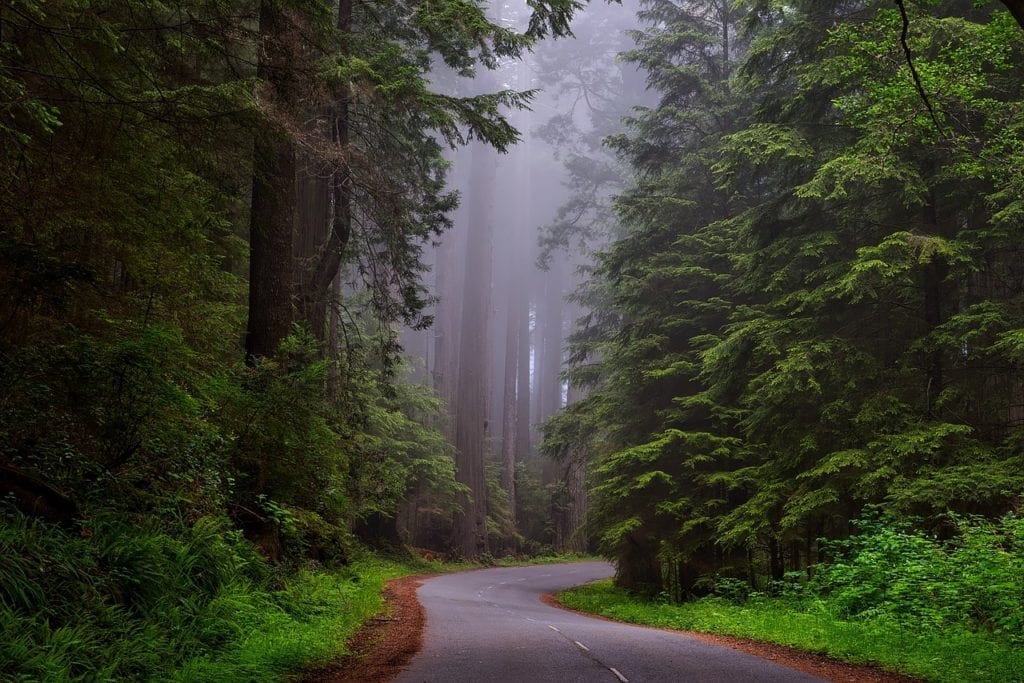
When we can be out in nature more, during a hike, we are usually happier. Staying close to nature can offer us serenity and peace of mind.
If you make your hiking destination to a lake or a beach, then you may have additional enjoyable experiences. Your experience depends on how well you can see the positive aspects of nature around you.
12) Anticipation and Motivation
It is exciting to go on a new adventure and to think of the experiences we will have. Anticipation is one of the most fun parts of planning a trip. We hope and plan to have some great experiences.
As you plan you can imagine how things will turn out. When you arrive, you can make your plans a reality. As you hike, you may start to feel the excitement of reaching your destination.
You may feel motivated to achieve your goals and arrive at your destinations.
Hiking can help you plan lots of exciting adventures to many national parks and local destinations. You can make it a part of your life and find the world has a limitless number of places to visit.
13) Time Management / Planning:
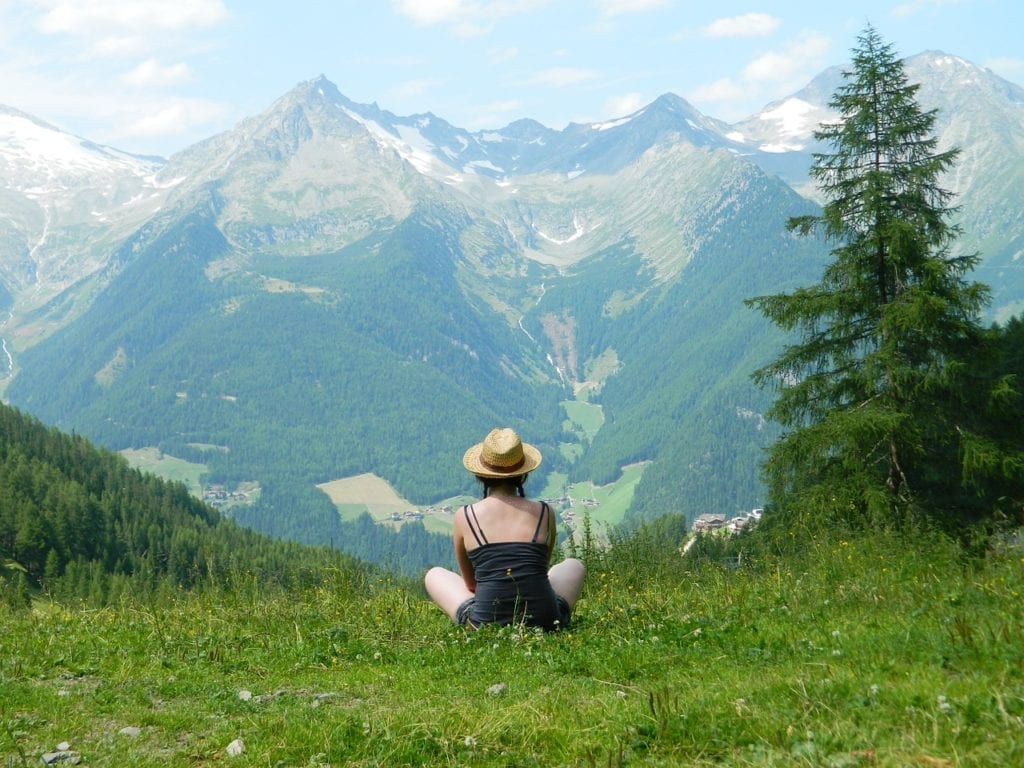
Another benefit of hiking is that you learn time management. With long hikes, you’ll need to plan for many things to happen at certain intervals during your hike.
You set specific goals for distances and dates of arrival. You constantly are adjusting your schedule and planning for the next day.
You plan for food drops and locations, and where to find water. You plan for check-in times with others via phone calls or satellite notifications. You plan for detours and problems that may occur.
You learn to manage your time and get things done, even though you’re tired and hungry. When things are difficult, and you push through, your learning the skill of not giving up and managing your feeling. These are skills that can be taken back home and implemented as you’re inspired to do other activities.
Most of the time hiking can be a fun experience, but it has ways to teach us lessons that can help us in life.
Hopefully, your next experience with hiking will be a fun adventure where you remain safe and have a good time. Maybe you can take a little bit of nature and improved well-being back with you as you return from your next long-distance hike.
Thanks for visiting Helpshoe.com
Related Questions
What are the best hiking shoes?
Each person needs to choose shoes based on their main hiking goals, and foot comfort while hiking. The major hiking brands have a variety of shoes they’ve re-engineered over the years to help hikers get the most from their shoes. Choosing one of these brands is your best bet.
Can I hike for a week without training?
Yes, but you need to go slow and make sure you’re plan is thoroughly thought out, so you don’t run into any trouble. Go with someone else, and try to have an experienced hiker with you as well.

